|
I was recently helping a college graduate who has a job interview. This time I saved a lot of time by seeking help: ChatGPT. So here is what I did? I gave ChtGPT the Job description and asked what questions can I expect from the employer. I view this as a 80/20 solution. This can help you with 80% of the questions. The other 20% are unpredictable that you will have to think on your feet. I am sure the employer is also using ChatGPT to keep you off balance. Job Description Job Title: Financial Services Representative Company: TopCo Financials (name changed) Are you an experienced and detail-oriented professional with a passion for helping & educating others? TopCo Financials is a nationally recognized Financial Services Firm that hires top-tier talent. We are dedicated to establishing meaningful connections with a diverse clientele. Our Financial Representatives and Financial Advisors proudly serve a wide spectrum of individuals, including small business owners, educators, entrepreneurs, families, first responders and more. We offer a range of tailored services, addressing specific financial needs, whether through comprehensive financial strategies or specialized focus areas such as Retirement Income Strategies, Estate Planning Strategies, Tax Planning Strategies, Risk Management & Protection Planning, Wealth & Portfolio Management, College Funding, Special Needs Planning, Planning with Charitable Intent, Business Owner Strategies, Small & Large Group Employee Benefits and more. What sets us apart is our unwavering commitment to a holistic approach in crafting and cultivating personalized financial wellness strategies. We genuinely care about the well-being of our clients, and our dedicated, all-encompassing method reflects this passion. To ensure the highest quality of guidance, our team follows a rigorous process that leads to exceptional outcomes and empowers clients to pursue their financial goals with confidence. In this role, you will be responsible for providing exceptional financial guidance, promoting our range of products and services, and building lasting relationships with clients. To be successful, you must possess the following characteristics: Financially Driven, Coachable, Strong Verbal & Written Skills, Charismatic & Confident, Ethical and Self Motivated. Financial Services Representative Responsibilities:
Step 1: Potential Employer Questions What questions can an employer with this job description? Job Title: Financial Services Representative ### Questions an Employer Might Ask for This Job Description #### Experience and Background: 1. **Role-Specific Experience:** - Can you describe your experience in financial services, particularly in consulting with clients and providing tailored financial recommendations? - Have you worked with a diverse clientele before? Can you provide examples of how you managed their different financial needs? 2. **Client Engagement and Relationship Building:** - How do you approach building and maintaining long-term relationships with clients? - Can you share an example of a time when you successfully converted a cold call into a long-term client relationship? 3. **Knowledge of Financial Products:** - How familiar are you with the range of financial products and services we offer, such as retirement income strategies or estate planning? - How do you stay updated on new financial products and market conditions? 4. **Analytical and Problem-Solving Skills:** - Can you provide an example of a complex financial problem you solved for a client? - How do you approach assessing market conditions and their potential impact on client investments? 5. **Communication and Presentation Skills:** - How do you ensure that your communication with clients is clear and effective? - Can you describe a situation where your strong verbal and written communication skills helped resolve a client’s issue or concern? 6. **Customer Service:** - How do you ensure outstanding customer service in your interactions with clients? - Can you provide an example of a time when you went above and beyond to meet a client's needs? #### Behavioral and Personal Traits: 7. **Drive and Motivation:** - What motivates you to work in financial services, and how do you stay driven and focused on your goals? - Can you share an example of a time when your financial drive led to a successful outcome? 8. **Ethics and Integrity:** - How do you ensure that your work always aligns with ethical standards? - Can you describe a situation where you had to make a difficult ethical decision? 9. **Coachability and Learning:** - How do you respond to feedback and coaching? - Can you share an experience where being coachable helped you improve your performance or skills? #### Technical and Professional Skills: 10. **Proficiency with Tools:** - How proficient are you with Microsoft Office applications and CRM software? - Can you describe how you have used these tools in your previous roles to manage client relationships and track performance? 11. **Licensing and Certification:** - Do you currently hold the necessary state licenses to perform financial services? - Are there any additional certifications or qualifications you are pursuing or plan to pursue? 12. **Networking and Professional Connections:** - How do you establish and maintain connections with professional networks, including accountants and attorneys? - Can you provide an example of how a professional connection benefited your clients? #### Fit and Future Goals: 13. **Alignment with Company Values:** - What attracted you to Integrated Financial Concepts, and how do you see yourself fitting into our culture? - How do your personal values align with our holistic approach to financial wellness? 14. **Career Goals:** - What are your long-term career goals, and how does this role fit into your plans? - How do you see yourself growing within our company? 15. **Contribution to the Team:** - How do you see your role contributing to the overall success of our team and company? - Can you provide an example of a time when you worked collaboratively with a team to achieve a common goal? By preparing thoughtful answers to these questions, you can demonstrate your qualifications, experience, and alignment with the company's values and expectations for the Financial Services Representative role. Step 2: How to answer these questions? ### How to Answer the Questions for the Job Description: Financial Services Representative at Integrated Financial Concepts #### Experience and Background: 1. **Role-Specific Experience:** - **Answer:** Highlight your relevant experience and provide specific examples. Emphasize your client-focused approach and success in consulting and recommendations. - **Example:** "I have over five years of experience in financial services, during which I have consulted with a variety of clients, from small business owners to families. In my previous role, I successfully provided tailored financial strategies, resulting in a 20% increase in client satisfaction and retention." 2. **Client Engagement and Relationship Building:** - **Answer:** Discuss your approach to client engagement and provide specific examples of successful long-term relationships. - **Example:** "I believe in building strong, trust-based relationships with clients. One example is a client I initially reached out to through cold-calling who later became a long-term client. By understanding their needs and consistently providing value, I fostered a relationship that led to multiple referrals." 3. **Knowledge of Financial Products:** - **Answer:** Demonstrate your knowledge of financial products and your commitment to staying updated. - **Example:** "I am well-versed in various financial products, including retirement income strategies and estate planning. I regularly attend industry conferences and webinars to stay informed about new products and market trends, ensuring I provide the most current and relevant advice to my clients." 4. **Analytical and Problem-Solving Skills:** - **Answer:** Provide examples of your analytical skills and problem-solving abilities in financial contexts. - **Example:** "In my previous role, a client faced a complex tax issue due to market fluctuations. By analyzing the market conditions and adjusting their investment strategy, I helped them minimize their tax liability and achieve their financial goals." 5. **Communication and Presentation Skills:** - **Answer:** Highlight your communication skills with specific examples. - **Example:** "Clear communication is crucial in financial services. In one instance, I helped a client understand a complex investment strategy by breaking it down into simple terms and visual aids, leading to their informed decision and satisfaction." 6. **Customer Service:** - **Answer:** Showcase your commitment to outstanding customer service with concrete examples. - **Example:** "I always strive to exceed client expectations. For example, I once worked overtime to resolve a client's urgent financial issue, ensuring their peace of mind and earning their long-term loyalty." #### Behavioral and Personal Traits: 7. **Drive and Motivation:** - **Answer:** Share what drives you and provide examples of your motivation in action. - **Example:** "I am driven by the opportunity to make a positive impact on clients' financial well-being. My motivation helped me exceed my sales targets by 30% last year, as I consistently sought to understand and meet clients' needs." 8. **Ethics and Integrity:** - **Answer:** Discuss your commitment to ethics and provide an example of an ethical decision. - **Example:** "Integrity is fundamental in financial services. I once advised a client against a high-risk investment that would have benefited me financially but was not in their best interest. This decision reinforced their trust in me and resulted in a long-term relationship." 9. **Coachability and Learning:** - **Answer:** Demonstrate your openness to feedback and continuous learning with examples. - **Example:** "I value feedback as a tool for growth. In my previous role, I actively sought feedback from my mentors, which helped me improve my client engagement strategies and achieve higher client satisfaction rates." #### Technical and Professional Skills: 10. **Proficiency with Tools:** - **Answer:** Highlight your proficiency with relevant tools and provide examples of their use. - **Example:** "I am proficient in Microsoft Office and CRM software, which I used extensively to manage client data and track performance. These tools helped me maintain organization and provide timely and accurate advice to clients." 11. **Licensing and Certification:** - **Answer:** Discuss your current licensing status and any ongoing efforts to obtain further qualifications. - **Example:** "I hold the necessary state licenses for financial services and am currently pursuing additional certifications in estate planning and risk management to enhance my expertise." 12. **Networking and Professional Connections:** - **Answer:** Share your approach to networking and provide examples of successful professional connections. - **Example:** "I actively network with accountants and attorneys to provide comprehensive financial solutions to clients. A recent collaboration with a tax attorney helped a client navigate a complex tax situation, demonstrating the value of professional connections." #### Fit and Future Goals: 13. **Alignment with Company Values:** - **Answer:** Express your alignment with the company's values and culture. - **Example:** "I am impressed by TopCo Financials' holistic approach to financial wellness and commitment to client well-being. My values align closely with this philosophy, and I am excited about the opportunity to contribute to such a client-centric organization." 14. **Career Goals:** - **Answer:** Discuss your long-term career goals and how this role fits into them. - **Example:** "My long-term goal is to specialize in retirement income strategies and eventually move into a leadership role. I believe that TopCo Financials offers the right environment for me to grow and achieve these goals." 15. **Contribution to the Team:** - **Answer:** Highlight your teamwork skills and provide examples of past contributions. - **Example:** "I am a strong team player and believe in the power of collaboration. In my last role, I worked closely with colleagues to develop a comprehensive financial plan for a major client, which resulted in a 25% increase in their investment portfolio." By preparing thoughtful and detailed answers to these questions, you can demonstrate your qualifications, enthusiasm, and alignment with the values and expectations of TopCo Financials. Step 3: Practice, practice, practice Step 4: Do a mock interview with someone Step 5: Formal Interview If you go through these five steps, you will be well prepared and focused. #####  Communication is our only differentiator in winning. I guide people succeed when they must win, such as getting a good job, advancing in career or winning a sales deal. I wrote a practical, no-nonsense book on winning throuhg speaking titled Winning Speech Moments: How to Achieve Your Objective with Anyone, Anytime, Anywhere. Get the Free Speech Checklist Email: [email protected] Phone: 732-847-9877
0 Comments
The question is, "Why should we hire you?" This question is often not asked directly, nor is it usually the first question in an interview. However, it would help if you addressed the primary question before answering other questions. No matter what question is asked, you should bring it back to the most important question by saying: "Before I answer your question, let me briefly tell you a little bit about myself so you know why I am here." What you are going to tell them is why they should hire you. Be direct, as you are there to get a job, not to score style points. Consider a recent example where preparation could have made a huge difference: President Biden's performance in the debate against Donald Trump. Contrary to popular belief, his performance issues were not due to age but to very poor preparation. This underscores the power of being well-prepared, putting you in control of the situation. I worked with a recent college graduate who struggled to get job offers despite landing interviews. The problem is that students spend a lot of time learning various subjects in school but need more time (if any) to develop the crucial skill of interviewing. They often learn this the hard way. But why should it be that way? Here's What We Did: Based on his college experience, internship, and extracurricular activities, we focused on three key words: Learn, Contribute, and Grow. Learn
With this focus, aim to create a win-win relationship in which you win by making your boss, team members, and company successful. This means that by hiring you, the company gains a valuable asset, and in return, you gain a fulfilling job and opportunities for growth and development. By answering this question effectively, you will demonstrate preparation, thoughtfulness, and insight, persuading the interviewer to bet on you. This will leave you feeling reassured and confident in your abilities. Applying This Approach: Reflect on Joe Biden's "job interview" in the election:
Biden's failure to effectively prepare and communicate led to his poor performance. Avoid this mistake by following the tips provided. It will show that you are well prepared, focused, and can get the job done. You will engender confidence in the interviewers that you are the one they are looking for to get the company to the "promised land." #####  Communication is our only differentiator in winning. I guide people succeed when they must win, such as getting a good job, advancing in career or winning a sales deal. I wrote a practical, no-nonsense book on winning throuhg speaking titled Winning Speech Moments: How to Achieve Your Objective with Anyone, Anytime, Anywhere. Get the Free Speech Checklist Email: [email protected] Phone: 732-847-9877 We all are passionate about something in life. The question is, how should you address passion during a job interview? During a job interview, you may be asked by an interviewer, or you may reveal it yourself. It's crucial to remember that expressing your passion should be authentic and not forced. This authenticity can help you connect with the interviewer and demonstrate your genuine interest in the job. But what if your passion does not resonate with the interviewer? If that happens, you may fall into a trap you probably can't easily escape. This one word could doom your chances of getting the job. How do you handle this question? For the interview, your passion is the job you are interviewing for, and that's it. If there is something else that is your passion, then you should not be interviewing for the job. As far as you are concerned, other things are your interests and hobbies. For instance, if you're passionate about marketing, you can express this by discussing your excitement for creating innovative campaigns or your interest in staying updated with the latest industry trends. In the book The Devil Wears Prada, Andrea Sachs is being interviewed for a job as Miranda Priestly's assistant. Priestly, the editor of a fashion magazine called Runway, lives and breathes fashion; thus, she is very demanding and has a reputation for being difficult. During the interview, Andrea reveals to Miranda that "Writing has always been her passion." Miranda asks, "So, does your affinity for writing mean that you're not particularly interested in fashion?" This scenario illustrates the importance of aligning your passion with the job you're interviewing for. Andrea was trapped. She had to come up with a good lie. She says, "Oh no, of course not. I adore fashion...I'm looking forward to learning even more about it since I think it would be wonderful to write about fashion one day." Miranda is a demanding boss and would not have hired Andrea unless she was impressed with Andrea's comeback and her potential to develop a strong passion for fashion. Now, this is a nice fiction, but in real life, you may not be able to get out of a trap like that; hence, you will have blown your chances with that answer. Why? When you are interviewing for a job, you better be as passionate, if not more, about the business the company is in and the work you have to do. If you are not, it is unlikely you will get the job. Even if you fake it and get the job, you will soon lose interest and not be happy, underscoring the importance of genuine passion in job roles. And Andrea Sachs lasted only a year for Miranda Priestly. In a Paris car ride, Miranda tells Andrea, " Clearly, you know nothing about fashion, and more than that, you don't seem to care." Andrea eventually had a fallout with Miranda and quit. Again, this is fiction, but there is some truth that when you are not passionate about a job, you will be unhappy and leave. Andrea's heart was in writing, which she pursued after she quit Runway. #####  I guide people succeed when they must win, such as getting a good job, advancing in career or winning a sales deal. I wrote a practical, no-nonsense book on winning throuhg speaking titled Winning Speech Moments: How to Achieve Your Objective with Anyone, Anytime, Anywhere. Get the Free Speech Checklist Email: [email protected] Phone: 732-847-9877 It's that time of year again when young people get all kinds of advice from people as they enter the workforce. In this blog post, I want to share and expand on straightforward advice Scott Galloway, author of The Algebra of Wealth, gave on "The James Altucher Show" podcast on April 23, 2024. His advice is the most practical I have ever come across for young people. When young people enter the workforce, all they have banked is a four-year degree with some internship experience that signifies that they can learn, have discipline and wherewithal to take on challenges, and acquired some requisite skills (both hard and soft) that would make them a good employee for an employer to bet on. But how do you differentiate yourself when other candidates will also meet these requirements? You have to get to the heart of the matter by focusing on three fundamental questions. You have to emphasize this during an interview. It is risky, but you have nothing to lose in your budding career.
Embrace the empowerment that comes from trusting your boss's ability to steer the company towards success. Your role is to contribute to your boss's success, and in doing so, you pave your own path to success. This mindset shift can be a game-changer in your career journey. The advice Galloway gives is this: "In consulting or in business, the easiest way for you to develop strong relationship is to get your boss or your client promoted. Make your boss successful by just doing great work for them. " He adds that if you make your boss successful, you will become a boss someday and hire people who will make you successful. And then you have to take care of those who helped you get to the top. That's how people have always reached the top in any field. This advice provides young people with focus very early as they start their career, which will result in a successful one. ##### 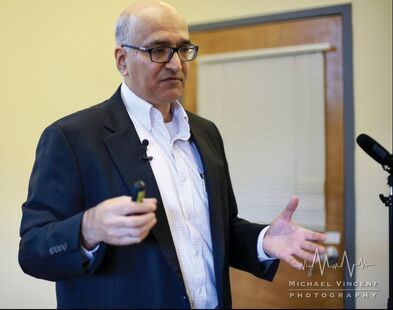 Time is Money, Communication is Wealth I guide people succeed when they must win, such as getting a good job, advancing in career or winning a sales deal. I wrote a practical, no-nonsense book on winning titled Winning Speech Moments: How to Achieve Your Objective with Anyone, Anytime, Anywhere. Get the Free Speech Checklist Email: [email protected] Phone: 732-847-9877 As you complete your summer internship, you might not be thinking about becoming a CEO, but it's crucial to start developing a CEO mindset. Adopting this mindset opens up various possibilities, such as getting ahead in your career, starting a business, and even becoming a CEO. Are you alarmed by the onslaught of headlines about artificial intelligence (AI) taking over jobs as shown below: India now has AI news anchors. I tuned in and within the first 5 minutes, it's clear that news presenters are in serious trouble. ChatGPT took their jobs. Now they walk dogs and fix air conditioners.IBM could replace 7,800 jobs with artificial intelligence, CEO saysChatGPT creator says AI advocates are fooling themselves if they think the technology is only going to be good for workers: 'Jobs are definitely going to go away' However, amidst these advancements, one thing is certain – there will always be a demand for individuals with a CEO mindset. Conversely, those who adopt a "worker bee" mindset (i.e. performing the same tasks in the same way each day) will be vulnerable to AI. To safeguard against such vulnerabilities, you must get AI insurance by cultivating a CEO mindset, starting with your current job as an intern. You have nothing to lose and a lot to gain. So, how do you develop a CEO mindset? Carly Fiorina, the former CEO of HP, provides valuable insights into developing a CEO mindset in this podcast "Learning Leader by Ryan Hawk" titled "Episode #307: Carly Fiorina – Why You Should Run Towards The Fire" and in her book, "Find Your Way: Unleash Your Power and Highest Potential." She emphasizes the importance of a strong work ethic, regardless of your current job. Even when she was a secretary, she committed to working hard and excelling in whatever tasks she was assigned. For young people who might not feel fully engaged in their current job, Carly advises that it doesn't have to be the perfect job. Instead, doing a good job allows you to learn about yourself and those around you. Opportunities will arise, and you should fearlessly embrace them. Carly Fiorina's exceptional approach involved actively solving problems and collaborating with others to improve the situation. This CEO mindset garnered attention and led to more opportunities for her. Based on Carly Fiorina's advice, here are essential steps to follow at your current job:
To unlock your CEO mindset during your current internship, consider the following questions:
Remember to document your thought process and findings. The path to fostering a CEO mindset begins with your internship and continues throughout your career. Key points to keep in mind while you are working as an intern:
CEOs get to the top because they have solved a lot of big problems that got them noticed and were entrusted with more responsibilities. You don’t need a title to think, act and speak like a CEO. You can easily learn by reading and observing.
By following this blueprint, you can lay the foundation to develop your CEO mindset. Remember, it all starts with your internship and continues throughout your journey to the top – and remaining there. ######## 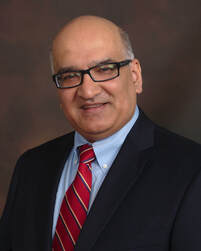 I guide people succeed when they want to win, such as getting a good job, advancing in career or winning a sales deal. I wrote a practical, no-nonsense book on winning titled Winning Speech Moments: How to Achieve Your Objective with Anyone, Anytime, Anywhere. Get the Free Speech Checklist Email: [email protected] Phone: 732-847-9877 Time is Money, Communication is Wealth Most people like watching the popular TV show Shark Tank because it is entertaining and can teach you a lot about entrepreneurship. But even if you don't aspire to become an entrepreneur, it can also teach you a lot about how to ace a job interview. It's hard for entrepreneurs to get on Shark Tank. Very few get to pitch their business to "sharks" (investors interested in funding entrepreneurs' business for equity). Getting a deal from "sharks" is harder. You have to prove your mettle and your growth potential. Similarly, getting a job interview is hard; walking away with a job offer is harder. Getting a deal on "Shark Tank" is not much different than getting a job. You have to use the same skills. Just like entrepreneurs on Shark Tank, to get a job, you must have these five things: Product, Purpose, Passion, Presentation, and Prize. Product Entrepreneurs on Shark Tank have a product or service they have developed over a long time. The product must solve customers' problems and make money. In a job interview, you are the product. And you have to show how you can solve an employers' problem so they can make money. Purpose This is your why. Most entrepreneurs on Shark Tank have a good story on why they are entrepreneurs. Sharks like to hear about entrepreneurs' why before they invest. When interviewing, you must have your why. Interviewers need to know why do you love what you do as a professional. Passion Entrepreneurs on Shark Tank are passionate about their products. This is a MUST. If entrepreneurs can't get excited about their product, they can't get "sharks" excited about making an investment. You must do the same when you are interviewing. You must show passion for your product---You--- and the value you will deliver. Presentation Entrepreneurs on Shark Tank are judged on how well they can present to "sharks." This is the test all entrepreneurs must ace. In a job interview, you must also do the same. You have to show who you are, what you have, and why they should care. If you do this well, you are likely to get the job. Prize Entrepreneurs know why they are on Shark Tank. They want a deal from the "sharks" to take their business to the next level. Also, they need to show why they are a prize for the sharks to want a bet on them. In a job interview, you must focus on getting a job offer and showing why the employer should bet on you to drive growth. Presentation Wins Deals To secure a deal from "sharks," entrepreneurs have to do a great job at presenting their product, business, and growth. Similarly, getting a job comes down to how well you can articulate the value you bring to an employer. You have to show confidence by displaying these five attributes in your interview like you are on "Shark Tank":
Simplicity Sharks get pitched a lot, so entrepreneurs must keep it simple. The successful ones tell, sell and close.
You have to do the same when interviewing. You have to keep it simple and must tell, sell and close. Clarity Entrepreneurs who are talking too much and not clear of what they are doing and where they want to go with their business are less likely to get a deal. The ones who get a deal are very clear and don't make the sharks think too hard. You must do the same when you are interviewing. Clarity is key to your success. You want to say less and let the interviewers ask for more if they are interested in knowing more details. Remember, the more words you use, the more you will confuse. You are likely to make the interviewers think hard. And when they have to think hard, they don't make a decision in your favor. Focus A lot of entrepreneurs lose deals because they are not focused. Lack of focus confuses the sharks, and they don't invest. In a job interview, you must stay focused on your message, narrative, problem-solving skills, and the value you can deliver to an employer. And keep repeating it. Saying it once is not enough. In the Old Testament, you see the Lord reminding Israelites how He rescued them from Egypt and gave them the land filled with milk and honey? There is a lot of repetition in the Bible. And the Bible is still the most popular book in the world. In an interview, act like a Lord and repeat what value you have delivered and will deliver in the future. It works. Money Entrepreneurs must be able to talk about money confidently. They must explain how much money they have made. How they plan to make more money in the future and how. Entrepreneurs are judged heavily on their ability to explain money. In a sense, it's all about money. Similarly, you must talk about money you have made for previous employers. How you plan to make money for the employer with whom you are interviewing. You are going to be judged on this part of the interview more closely than anything else. Employers may like what you can do for them, but it is your job to link it to money. Companies are in business to make money and lots of it. If you have done it, say it. Don't assume the interviewers will figure it out. And yes, like the Bible, keep repeating, "I help companies make money." Attitude If you are on a stage that can change your life, you have to act like a winner. Entrepreneurs who act like winners on the show not only get a deal but get an excellent deal. When you are interviewing, you must show a winning attitude. It's contagious. You will not just get an offer but get an excellent offer. You have to act like a winner before you can be a winner. You must maintain your composure in a stressful situation and stick to your game plan. If you do that, you will exude confidence and increase your chances of getting a job offer. Getting a job is no different than getting a deal on "Shark Tank." You must have something sellable, but that is not enough. You have to do a great job in presenting your value in a job interview. It is a test to get the job. With some work, and perhaps so some targeted coaching, anyone can ace it. Good Luck! ##### 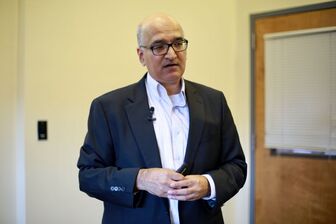 I guide people thrive on high stakes stage whether it's for a job interview, career advancement, a sales presentation or a high-stakes speech. I wrote an advanced and comprehensive book on public speaking titled Winning Speech Moments: How to Achieve Your Objective with Anyone, Anytime, Anywhere. The main idea of the book is that if you want people to remember you and take action, you must create a winning speech moment in your speech. Please contact me if you would like to thrive on high stakes stage. You can reach me at [email protected] or 732-847-9877. Remember, Time is Money but Communication is Wealth We often don't pursue a job unless we have experience. So how do you get a job when you don't have the experience? It's is a classic chicken and the egg problem. How do you get the experience if you don't get the job first? Suneel Gupta offers an excellent approach to try in his book "Backable: The Surprising Truth Behind What Makes People Take A Chance On You." He explains what Reid Hoffman (entrepreneur, venture capitalist, author, podcaster) did early in his career to become a product manager at Apple without any experience. Instead of competing with better-qualified candidates, Hoffman tried something different. He approached James Isaacs, the head of product management, whether he would be open to looking at his ideas presented in a document. Isaacs agreed. After completing his document, Hoffman went to see Isaacs get his feedback. Though the document was not perfect, it showed to Isaacs that Hoffman had real potential. By taking a chance on Hoffman, Isaacs was now invested in Hoffman's success. And that's how Hoffman started his career in product management. Gupta used this lesson when he was trying to get funding for his startup. Hoffman advised Gupta that when you pitch for financing, address one to issues that are problematic right upfront. Don't wait for it to come up in Q&A. If address the issues upfront and show how you plan to address them, they may be more willing to take a risk on your startup. It worked. Gupta received funding for his startup. So the lesson here is that when you don't have the experience, there is a lot of uncertainty that makes it easier for someone to say no. The one way to overcome this uncertainty is to point it out upfront and then do something about it that makes you less uncertain. That is what Hoffman did that jumpstarted his career. That is what Gupta did that got him funding for his startup. That is something we can all do to get ahead in our careers, business and life. ##### 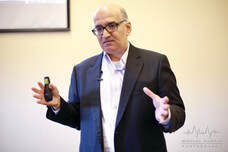 I am an author, speaker, career success coach. I guide people thrive on high stakes stage whether it's for a job interview, career advancement, a sales presentation or a high-stakes speech. I am the author of a practical book on speaking titled Winning Speech Moments: How to Achieve Your Objective with Anyone, Anytime, Anywhere. The main idea of the book is that if you want people to remember your speech and take action, you must create a winning speech moment. Please download the free speech checklist I created that I always use to create a winning speech for any occasion. Please contact me if you would like to thrive on high stakes stage. You can reach me at [email protected] or 732-847-9877. Note, if you are an author, executive, podcaster or interesting and would like me to interview with five questions and then publish it as a blog post and promote it on LinkedIn, Twitter and Facebook and become famous, please contact me.  Super Bowl is here again. It is the pinnacle of a long National Football league (NFL) season where the winning team will walk away with the most coveted trophy in American sports: the Vince Lombardi trophy. The winning team's players will receive their Super Bowl rings and the glory that accompanies winning the big game. To make it in the NFL, you must have a boatload of talent and willpower. Then to make it to the Super Bowl, you are the best of the best. That's why the game gets so much attention since it has a lot to teach us how to be the best in what we do and what it takes to win the ultimate prize of success. For us, our equivalent to playing in a "Super Bowl" is a job interview. To get an interview that can lead to getting a job and having a good career requires a lot of work. You need a good education, strong work experience, and marketable skills. When you do well in a job interview, you win a job, get a pay increase, and a path to a good career. To win a job interview, you have to be talented, experienced, adaptable, well-prepared, and poised. Interviews are highly stressful, and they should be since there is so much riding on them. Both you are the employer have to make a decision on making a big investment. And if it does not work out, it can be devastating for both. This makes interviews very high stakes and high opportunity. Football payers strive to have an opportunity to prove their worth in the Super Bowl. All NFL players are winners to be playing in the NFL. But they want more. They all have two goals: One, to get in the Super Bowl; second, win it. Is it just another game? Yes and No. The game does not change. But It is no ordinary game. It is the only game watched by over a hundred million people all around the world. People scrutinize every play on the field, every decision made by coaches, every call made by officials, every commercial aired on TV, and every song sung by the entertainment act during half time. Similarly, you have to prove your worth in a job interview. You are being judged on what you say and do during a job interview. You have to know what you are up against since there are no second chances. Your real competition is not another candidate but the interviewer. The other candidates can't affect your performance. It is how well you play the interview game against the interviewer to get you the win. You are probably saying at this point, hey, I thought I was just interviewing for a job, not taking it like I was playing in a so called "Super Bowl." Perhaps you should. Are you working hard to get an interview in the first place? And then, when you do get an interview, are you doing whatever it takes to get the job offer? If the answer to both is yes, then you have the same mindset of an NFL player. The stakes are very high for the Super Bowl as there is a lot of hype surrounding the game. For your job interviews, you have to raise the stakes. Unfortunately, many don't. I am amazed at how ill-prepared candidates often are for job interviews. People don't realize how much work is involved when you are interviewing for a job. Many have done more preparation for their SATs than they do for job interviews. You may get away with this for entry-level positions, but not if you want to get ahead in your career. Your competition will get much more difficult, and you can assume that they are all in it to win it. Most people can't give a well-thought answer to a simple question, "Tell me something about yourself?" Can you answer that question and score a "touchdown" in the opening question? If you do, your chances of winning the job go up quickly. It is a statement answer for the interviewer. He or she will know that you have not just shown up to play but are ready to stand out and secure an offer. Having a good career is not an accident, just like winning a Super Bowl is not an accident. Winning a Super Bowl means you worked harder, smarter, better than others both individually, as a team, and as an organization. And probably got some luck along the way too. Football players don't do it alone. They have had all kinds of coaches from young age to a professional career. You can do the same by having a support group, mentors, and coaches to succeed. Winning is a team sport, whether it's Super Bowl or job interviews. Stakes are very high; thus, rewards are very high. That means you must want it badly and willing to do just about anything to win. Now go plan, prepare, and play to win like the NFL players will do at this year's Super Bowl. You can be a winner and get to celebrate your getting a new job with your family and friends and then start planning for your next win. ##### 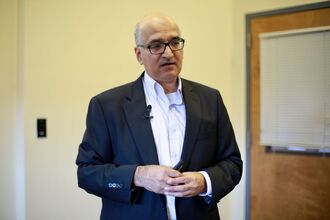 I am an author, speaker, career success coach. I guide people thrive on high stakes stage whether it's for a job interview, career advancement, a sales presentation or a high-stakes speech. I am the author of a practical book on speaking titled Winning Speech Moments: How to Achieve Your Objective with Anyone, Anytime, Anywhere. The main idea of the book is that if you want people to remember your speech and take action, you must create a winning speech moment. Please download the free speech checklist I created that I always use to create a winning speech for any occasion. Please contact me if you would like to thrive on high stakes stage. You can reach me at [email protected] or 732-847-9877. Note, if you are an author, executive, podcaster or very interesting to talk to and would like me to interview with five questions and then publish it as a blog post and promote it on LinkedIn, Twitter and Facebook, please contact me.  “Nothing else in the world…not all the armies…is so powerful as an idea whose time has come.”–Victor Hugo, The Future of Man. One thing we have learned from President Trump is how leaders like him think and hire. The leadership books make it appear that leaders have a methodical process that they follow when hiring. But that's not true. Leaders in business and politics operate by the gut. The trick to getting the job with them is to appeal to their gut. In this post, I will focus on William Barr, Attorney General (AG), in how he got the job of AG. I am using an example from the political world since most are probably familiar with him and can verify for themselves, but Barr's technique will work in any field. Note, you don't have to like William Barr or the job he is doing as AG, but you can definitely learn a lot on how to get a job. If you follow his technique, you too can get the job you want. What I find so interesting about William Barr is that he was not on anyone's shortlist to replace Jeff Sessions as the AG. So how did he end up getting the job? Below you will find the technique he used. Below are the steps William Barr went through that not only got him the job he wanted but has enabled him to keep the job, which is hard under President Trump. Validation Everyone wants to be validated and no one wants this more than leaders. If you validate their thinking, you are likely to get their attention. And no leader has demonstrated this more than President Trump. President Trump kept saying after he became President that he wanted his "Roy Cohn," a lawyer who can get him out of legal troubles. Roy Cohn was his lawyer in New York City who got him out of legal troubles. Unfortunately, he didn't have his "Roy Cohn" in the justice department to get him out of legal trouble, especially the Mueller investigation. President Trump was letting everyone know about his problem and what he was looking for in an AG who can solve his problem. President Trump's problem started when his first Attorney General, Jeff Sessions, had recused himself from the Mueller investigation since he had contacts with the Russian Ambassador to the United States. Sessions got the AG job because he helped Trump get elected President. Sessions, when he was the senator, was the first major political figure to endorse Trump. Sessions was very loyal to Trump and did everything Trump wanted in enacting his policies, especially when it came to immigration. But Sessions was not his "Roy Cohn." For recusing from the Mueller investigation, Sessions drew Trump's ire. It was a matter of time before Trump replaced Sessions. Enter William Barr. He has always had this view of the Imperial Presidency. Barr's interpretation of the Constitution allowed a president to exercise unlimited power with little to no checks and balances from Congress. Barr and the President thought alike. Barr's idea and time had collided and he was not going to miss this golden opportunity to redefine the presidency the way he envisioned it. But first he had to get his idea to the President since I don't think Trump knew who William Barr was. But how do you get the President's attention? Appeal to his self-interest. One thing I want to mention. All CEOs will say that they are not driven by self-interest. But when you look deeper, that is not likely to be true. All leaders are driven by self-interest. You just have to do some research to find out what that is and if you focus on that, you will not only get their attention but a job too. Thought Leadership Barr had the credibility and the experience since he was the AG under George H.W. Bush for fourteen months. But he didn't get to re-define the presidency as he envisioned since Bush was defeated in 1992. Barr saw an opportunity with President Trump. Barr understood Trump's problem and knew how to solve it. But first, he had to get his view in public so Trump would find out. Barr was positioning himself as the "Roy Cohn" Trump was looking for. Barr wrote a memo dated June 8, 2018, titled "Mueller's 'Obstruction' Theory" that explained what he saw wrong with the Mueller investigation. In short, he thought that a president can't be investigated while in office. Below was the opening sentence in this memo: "I am writing as a former official deeply concerned with the institutions of the Presidency and the Department of Justice. I realize that I am in the dark about many facts, but I hope my views may be useful." To follow an appropriate protocol. Barr sent the memo to Deputy Attorney General Rod Rosenstein and Assistant Attorney General Steve Engel. But his ultimate audience was President Trump, and he knew that with his credibility and experience, the memo would get Trump's attention. And it did. Build Consensus But President Trump needed to see whether William Barr had support from his core supporters before he replaced Jeff Sessions. Barr had plenty of support. One of the people who lobbied on behalf of Barr was Pat Cipollone. Cipollone was Barr's former speechwriter, a fellow board member at the Catholic Information Center, and White House Chief Counsel. Barr also received plenty of support from Fox News, especially Laura Ingraham, whom president Trump frequently talks to get her views on political matters. President Trump now had the cover from inside the White House and Fox News who he depends on getting ideas and making decisions. Trump wanted Barr. Getting the Job Selling President Trump was not hard since the memo did the job. Since Barr's view of the Imperial Presidency aligned with President Trump's view, Trump finally had his "Roy Cohn." To make it official, Barr had to look and sound reasonable in the Senate Judiciary hearing to not cause any consternation among Senate Republicans when it came to confirming Barr. Since the Republicans had the majority Barr was confirmed along party-line votes. Doing the Job Barr now had to live up to being Trump's "Roy Cohn" and he did not disappoint. Mueller Investigation Instead of releasing the report, Barr released a four-page letter with his interpretation of the Mueller report on March 24, 2019. And the redacted report was not released till April 18, 2019. This allowed Barr to spin the report that Mueller did not find any collusion between the Trump campaign and the Russians. He also did not find any obstruction as he wrote this in the four-page Barr letter: "... Deputy Attorney General Rod Rosenstein and I have concluded that the evidence developed during the Special Counsel's investigation is not sufficient to establish that the President committed an obstruction-of-justice offense." The characterization of the Mueller report in the Barr letter allowed President Trump to keep repeating "No Collusion, No Obstruction, No Nothing." And it stuck. Trump did not get impeached even though there were at least ten incidents of obstruction cited in the Mueller report that were committed by President Trump. But Barr kept Trump out of trouble by creating narrative that the investigating didn't find anything impeachable. It worked. Michael Flynn Investigation William Barr recommended that charges be dropped against Michael Flynn, the National Security Advisor. Flynn had admitted that he had lied to the FBI twice regarding his contact with the Russian Ambassador. The reason Barr cited was that Barr felt that the government had no legitimate reason to investigate Flynn in the Russian probe. Again, Trump did not want Flynn to go to jail, and Barr acted as Trump's "Roy Cohn." The Appeals court will decide whether the justice department can drop the charges against Flynn. Roger Stone Investigation Roger Stone, long time ally of President Trump, was found guilty of witness tampering and lying. The prosecutors in the justice department wanted to recommend a sentence from seven to nine years. But when Trump sent angry tweets, the four prosecutors withdrew from the case. Another prosecutor working for Barr recommended that the original recommendation was too harsh. Again, Barr came through as Trump's "Roy Cohn." Stone was sentenced to 40 months in prison, a $20,000 fine, two years of probation, and 250 hours of community service. But he never served any time in jail since his sentence was commuted by President Trump. E.J. Caroll E.J. Carroll, an American journalist and advice columnist, had filed a defamation suit against Trump. She had accused Donald Trump of sexually assaulting her at the Bergdorf Goodman store in the late 1990s. When a judge ruled that Trump had to provide his DNA, Trump again needed his "Roy Cohn" to go into action. And that is what Barr did. The justice department took over the case, and at the least, it buys Trump some time during the re-election. At worse, the case will simply disappear since the government can't be charged with defamation. Barr knows what his job is and why he wanted the job and has not disappointed Trump thus far and unlikely to do so. Barr understood Trump's problem and knew he could solve it. He got Trump's attention by writing a memo and got the job. He has kept Trump out of legal troubles. If you do what Barr has done fro Trump, you too can get the job you want. #####  Jay Oza is an author, speaker, executive coach. He makes people thrive on high stakes stage whether it's for a job interview, a sales presentation or a high-stakes speech. He is the author of a practical book Winning Speech Moments: How to Achieve Your Objective with Anyone, Anytime, Anywhere. You can get this book on Amazon for 99 cents for a limited time. Please download the free speech checklist that you can use to help you create a winning speech for any situation. Please contact him if you would like to have a two 75 minute coaching session on job interviewing or high-stakes speaking. If you are interested in inviting him to give a talk on job Interviewing or high-stakes speaking. You can reach him at [email protected]. Hiring the right candidate for a job is hard, especially if it's for a high-level position. Whomever you hire will either help you win or lose; hence, the stakes are very high. When hiring, there are usually three types of candidates you end up considering: 1) Candidates who are NOT interested. 2) Candidates who really want the job. 3) Candidates who are interested. In this blog post, I focus on #1, those who are not seeking the job you have or are even interested in the beginning. For you to get these candidates, you need a lot of skills besides sales. In future posts, I will cover #2 and #3. Candidates who fall in to category #1 have no competition and it is up to them whether they take the job. Note, this position is not advertised. The only person who knows about this position is the person who is hiring. And this happens at high-level, mid-level and low-level. You want to get into this category by letting people know you are worth the bet. Why target those who are not interested? They are likely to help you win if you can persuade them to work for you. It won't be easy. The uninterested candidates require time, patience, flexibility, and gentle persuasion. If you want to be an effective leader, you must do whatever it takes to get these people on your team. You see this in football, both NFL and college. The winning coaches have outstanding assistant coaches. All good coaches want to work for Bill Belichick, head coach of NFL's New England Patriots, and Nick Saban, head coach of the University of Alabama. If an assistant coach is good and lucky to get to work for these two great coaches and help them win, that assistant coach will have an excellent shot at getting the head coaching job either in the NFL or college. It's no different in business and politics. In this post, I use as an example of how Barack Obama got Joe Biden to become his vice president. I show the ten steps that are required to entice talent and demonstrate you are indeed an effective leader. The source for this post is Joe Biden's book, Promise Me, Dad. The candidates are going to go through these three phases. First, the candidate is going to go from not interested to interested. Second, the candidate is going to go from interested to serious consideration. Third, the candidate is going to go from serious consideration to acceptance. Below you will see what you have to do to take the candidate through these three steps. If you sell too hard or close to fast, it can backfire. Remember, the uninterested candidates have options so you have to foremost develop a relationship. You have to show that you are a good bet. Steps To Hire Someone Who Does Not Want the Job 1) Express Interest in Hiring Barack Obama, after he had secured the Democratic nomination in 2008, contacted Joe Biden to vet him for vice president. Joe Biden's initial response was that he was not interested. Though Obama made it appear that Biden was the leading candidate and tried to close him by telling him that "This is real...But I need an answer right now." Joe Biden said, "Then the answer is no." What do you do if you were Obama? Move on to other candidates or persevere? This must have been hard for Obama to be rejected right after he locked up the Democratic nomination. If this happened to us, our ego is likely to get in the way. But you must learn to suppress your ego when you are trying to get talent if you want to be an effective leader. The uninterested candidates are going to be very challenging since they are not looking for a change. They are happy and secure where they are. Your work is cut out for you. Until they feel you care about their well being and future, they are not likely to want to take you or the job seriously. 2) Keep Trying Don't give up, if rejected. It's a long game. If you want to be successful, then hiring has to be one of your strengths. Talent is rare so you have to work hard to get those that you believe will make a difference. If you can't assemble an "A" team and get them to work well together, you are likely to fail and, worse, be blamed for failure. To get talent, you must be humble, patient, and flexible. 3) Show Patience If you want someone that is hard to get, you have to be patient since that person does not care if you don't hire him. He has to feel like he can make a difference. This takes some intense trust-building. Also, you must show empathy by urging the person to talk it over with the family. Why? Others close to the person are more likely to better persuade the candidate than you. They will provide a different perspective that can easily cut through. In Joe Biden's case, his sons wanted him to run with Obama. They felt---and were proven right--- that Biden can help Obama win Pennsylvania, Ohio, and Florida. His wife Jill was relieved that it was not the Secretary of State job since that would require a lot of traveling. But his mother may have been most effective in persuading Biden to take the VP job seriously when she said, "So let me get this straight, honey. The first African American in history who has a chance to be president says he needs your help to win—and you said no." So after talking to family, he started doing some serious due diligence. Pro: Make history by helping elect the first African American nominee. Con: The vice president position has been a butt of all kinds of jokes. Challenge: Reinvent the vice president position to make it work for both. There was one more thing that Biden had to overcome: he had not worked for a boss for several decades. When he brought this concern to his wife, she said, "C'mon, Joe... Grow up." Joe Biden went from not interested to interested. He finally agreed to be vetted but still wasn't committed. He still needed to have a one on one with Obama to discuss Obama's vision and priorities for the country and what role he envisioned for Biden. They were now entering a trust-building phase of the hiring process. 4) Develop Rapport Biden met with Obama and wanted to understand what Obama's expectations were. He found out that Obama wanted his help with foreign policy, an area Biden was strong in. Biden liked Obama's focus on helping the middle class. After their one on one meetings, Biden had a better understanding of Obama's vision for the future and the role he saw Biden playing. Biden was convinced that Obama was honest and could be a good president. Biden felt he could help Obama not only win but govern. But he still needed to be comfortable with the role that would make him happy. Joe Biden went from interested to giving the job a serious consideration. 5) Redefine Job Joe Biden liked Obama, but he still had not defined his role to make him accept the job. Joe Biden had experience in many areas based on his years in the senate, so he felt he can help Obama in all areas. Here is how he defined his role to Obama: "I want to be the last guy in the room on every major decision... You're president. I'm not. I get it. But if it's my experience you're looking for, I want to be the last guy to make the case." Obama agreed and got the man he wanted to be his vice president. They were both happy. But now they had to make it work. You can stop here and say that you got the person you wanted, but you will not be able to attract talent in the future. You must do more. And the next five steps are what you have to do to continue to attract and develop talent to remain an effective leader. 6) Build Trust Trust does not happen with one meeting. It has to be built and nurtured. And that's why Joe Biden wanted to have a weekly lunch meeting with Obama. It worked. It is something that not only helped them develop a strong working relationship but build deep friendship. 7) Give Responsibility If you hired well, then you must give the individual the responsibility to shine. And that is what Obama did with Joe Biden. Obama made Biden responsible for Iraq, Recovery Act, Ukraine, Northern Triangle, Cancer, and others. Biden did a good job with all the areas he was responsible for. 8) Grow into the Next Job The person has to do a good job, so his profile is enhanced and makes him attractive for a top job. In Biden's case, the president. In the corporate situation, this could be the top job at the same company or other companies. 9) Support and Promote If the person has done an excellent job and helped you win, you must do your part to support the person and promote him for a future top job. Again to use a football analogy, Bill Belichick has so many assistants who became head coaches. 10) Make Successful Once the person gets the top job, you have to help him in any way possible so he succeeds. As you can see, there are a lot of steps, but this is what's required. Great leaders do this, and that's why people want to work for them. ##### 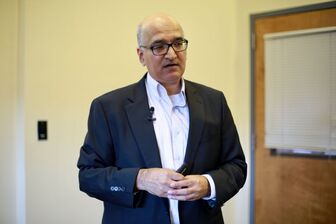 Jay Oza is an author, speaker, executive coach. He makes people thrive on high stakes stage whether it's for a job interview, a sales presentation or a high-stakes speech. He is the author of a practical book Winning Speech Moments: How to Achieve Your Objective with Anyone, Anytime, Anywhere. You can get this book on Amazon for 99 cents for a limited time. Please download the free speech checklist that you can use to help you create a winning speech for any situation. Please contact him if you would like to have a two 75 minute coaching session on job interviewing or high-stakes speaking. If you are interested in inviting him to give a talk on job Interviewing or high-stakes speaking. You can reach him at [email protected]. |
AuthorJay Oza Archives
July 2024
Categories
All
|
© 2017 Winning Speech Moments











 RSS Feed
RSS Feed